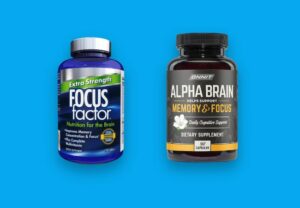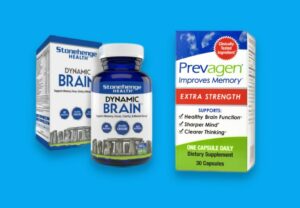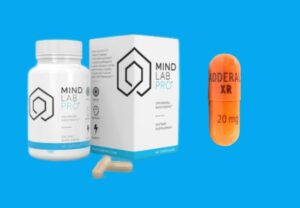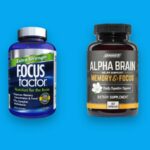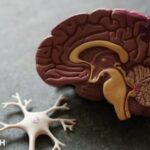Table of Contents
Introduction
As a nootropic expert, I’ve heard it all regarding the supposed side effects of different supplements. But I’ve heard a lot lately that Alpha GPC causes depression. I’ve been around the block a few times, and I’ve seen some pretty wild claims, but this one takes the cake! I mean, Alpha GPC is supposed to boost brain function and improve mood, not cause depression!
So, I set the record straight and separated fact from fiction. In this blog post, I’ll dive into Alpha GPC and depression to see if there’s any truth to this claim. We’ll explore the science behind Alpha GPC and its impact on mood and look at the real causes of depression.
Now, I know that depression is a serious issue, and I’m not trying to make light of it. Instead, I aim to provide accurate and comprehensive information and add a little humour to make this topic easier to digest. So, buckle up, grab a cup of coffee, and let’s get to the bottom of this Alpha GPC and depression mystery.
Alpha GPC and Depression: The Facts
I’m here to clear the air about Alpha GPC and depression. Alpha GPC, or Alpha-glyceryl phosphorylcholine, is a natural substance commonly used as a cognitive enhancer. It’s like the espresso shot for your brain, providing a quick boost to memory, focus, and learning ability. But how could such a helpful substance be causing depression? Well, let’s take a closer look.
You see, Alpha GPC increases the levels of acetylcholine in the brain. Acetylcholine is a neurotransmitter that regulates mood, among other things. And this is where the concerns about Alpha GPC and depression come in. An imbalance of acetylcholine has been linked to depression and other mood disorders.
But before you throw out your bottle of Alpha GPC, let’s take a step back. Just because acetylcholine is involved in regulating mood doesn’t necessarily mean that taking Alpha GPC will automatically lead to depression. On the contrary, many people who take Alpha GPC report improved mood and increased energy levels. It’s like having a personal cheerleader in your brain!
Is Alpha GPC the Real Culprit?
I have to say that there is little scientific evidence to support the idea that Alpha GPC is causing depression. On the contrary, several studies have shown that Alpha GPC can improve mood in people with depression and other disorders. So, it seems that the real culprit might be something else entirely.
You see, depression is a complex issue with a multitude of potential causes. Stress, trauma, loss, and imbalanced brain chemistry are just a few of the many things that can contribute to depression. Therefore, blaming one specific substance, like Alpha GPC, doesn’t add up.
It’s not uncommon for people struggling with depression to experience worsening symptoms when they take new supplements or medications. This could be due to the interaction between the substance and their current treatment plan or simply the result of their depression getting worse over time. But it’s not necessarily the fault of Alpha GPC.
So, before you start pointing fingers at Alpha GPC, it’s important to consider all the possible causes of your depression. Like playing a game of Clue, you must gather all the evidence before making an accurate conclusion. And, in this case, the real culprit is likely something else entirely.
Common Causes of Depression
I’m often asked about the causes of depression. And, while Alpha GPC has been thrown into the mix, many other factors can contribute to this complex and sometimes debilitating condition. So, let’s take a closer look at some of the most common causes of depression.
Stress is one of the biggest culprits when it comes to depression. It’s like a constant rain cloud hanging over your head, bringing you down day after day. And, let’s face it, who doesn’t have stress these days? It seems like the world is just getting faster and faster.
Trauma is another factor that can contribute to depression. Whether it’s a traumatic event that you experienced directly or a traumatic event that you witnessed, it can leave a lasting impact on your mental health. It’s like carrying a heavy weight around with you everywhere you go.
Loss is another common cause of depression. Losing a loved one, a job, or even just the life you once had can be devastating. It’s like the rug being pulled out from under you, leaving you feeling lost and helpless.
And finally, imbalanced brain chemistry can also contribute to depression. Think of your brain like a symphony, with each neurotransmitter playing its unique melody. The whole song is thrown off when one of those melodies is out of tune.
So, there you have it, some of the most common causes of depression. And, while Alpha GPC might not be the real culprit, it’s important to keep all of these factors in mind when trying to understand your depression.
Conclusion
Well, there you have it, folks! The truth about Alpha GPC and depression is straight from a nootropic expert’s keyboard. And, while Alpha GPC might not be the sole cause of depression, it’s always important to keep an open mind and consider all the potential factors.
Depression is a complex issue with many potential causes. Stress, trauma, loss, imbalanced brain chemistry, and many other things can all contribute to this difficult condition. And while Alpha GPC has been named a potential culprit, the evidence doesn’t support this idea.
So, before blaming your nootropics for your depression, take a step back and consider all the other factors that might be at play. And remember, depression is a serious issue that should always be taken seriously. If you’re struggling with depression, contact a mental health professional for help.
And, with that, I’ll leave you with a little joke to brighten your day. Why did the tomato turn red? Because it saw the salad dressing! (Okay, so it’s not the greatest joke, but it’s better than blaming Alpha GPC for your depression!)


